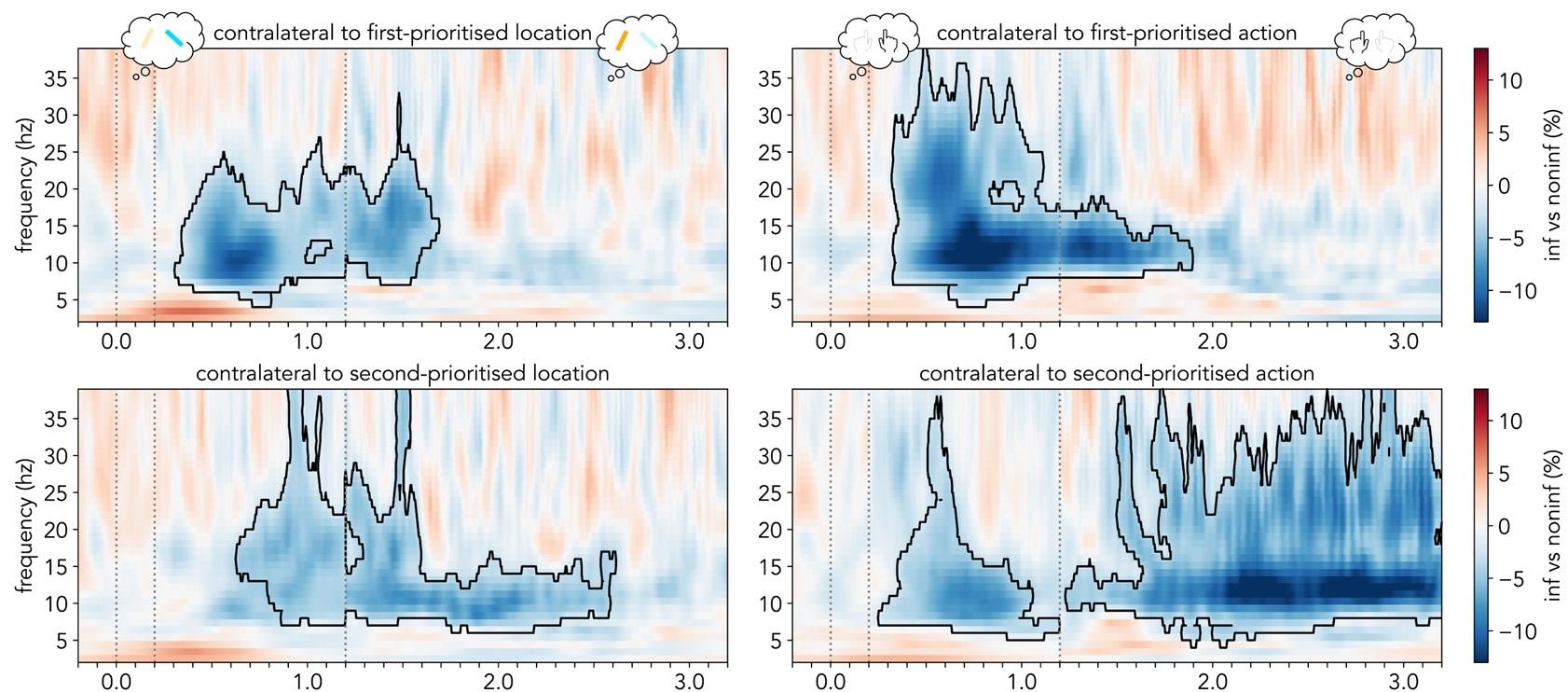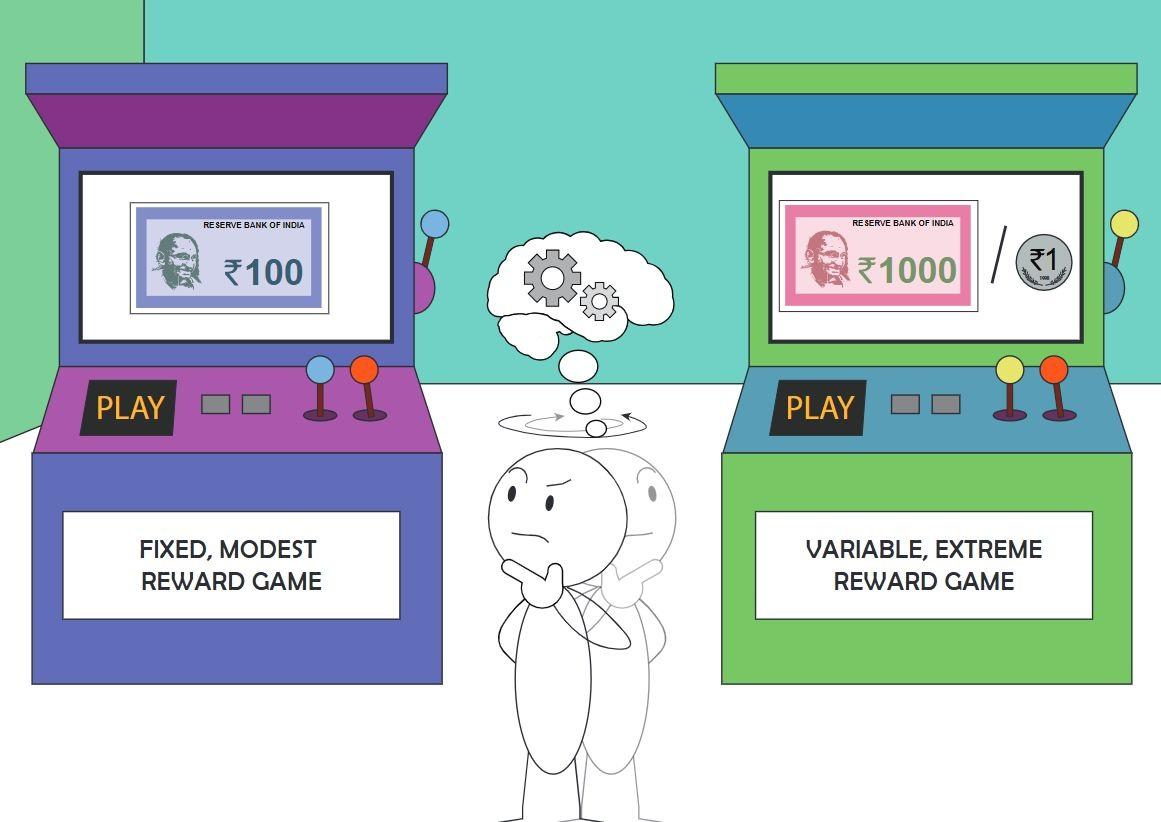#Attention modulates sensory contents of #WorkingMemory, but what about motor contents? @irenetxeberria &co show that brain representations of both sensory & motor contents of WM are modulated by attentional shifts, & are temporally uncoupled @PLOSBiology https://plos.io/46bUrY8
#attention
See tagged statuses in the local BookWyrm community
Reward expectation modulates #attention & #DecisionMaking but are these mediated by common or distinct mechanisms? This study shows that spatial manipulation of #reward expectation modulates sensitivity, while choice-based manipulation affects decision making @PLOSBiology https://plos.io/4eDPERq
Much as I'm enjoying the Schadenfreude of the Trump/Musk feud along with everyone else, I'm also starting to think the degree we focus on things like this is part of the problem. Politics is not supposed to be just about celebrity personalities. It's supposed to be about policies and representing all the people. We can't get better if we keep getting high off the dopamine supply of news like this. We have to choose to pay attention differently.
Meditating your way through the ups and downs of daily life is the whole point of vipassana. This kind of practice is extremely rigorous and demanding, but it engenders a state of mental flexibility that is beyond comparison. A meditator keeps his mind open every second. He is constantly investigating life, inspecting his own experience, viewing existence in a detached and inquisitive way. Thus, he is constantly open to truth in any form, from any source, and at any time. This is the state of mind you need for liberation.
It is said that one may attain enlightenment at any moment if the mind is kept in a state of meditative readiness. The tiniest, most ordinary perception can be the stimulus: a view of the moon, the cry of a bird, the sound of the wind in the trees. It’s not so important what is perceived as the way in which you attend to that perception. That state of open readiness is essential. It could happen to you right now if you are ready. The tactile sensation of this book in your fingers could be the cue. The sound of these words in your head might be enough. You could attain enlightenment right now, if you are ready.
What a wake-up call!
#mindfulness #enlightenment #awakening #awareness #meditation #Buddhism #vipassana #perception #attention
https://time.com/7276807/why-students-using-ai-avoid-learning/?utm_source=substack&utm_medium=email
"While she acknowledged that her grades are climbing higher, she wasn’t particularly proud. She didn’t sound like someone who was ever looking for an easy shortcut. She sounded like someone waving a white flag." #AI #Learning #Education #Motivation #Attention #AttentionEconomy #SocialMedia #Cognition
"The #economy of #attention doesn’t ask what you think; it asks how fast you can say it, how loud, and how often. And if you play long enough, you stop making anything for the people you care about and you start making it for the feed. The result is a race to the bottom with a machine that needs to be fed even if it’s chewing up your integrity.
So I stopped… I switched from social performance to #sovereignpublishing. I started writing slower. Longer. Weirder. Truer."
https://www.joanwestenberg.com/notes-from-the-exit-why-i-left-the-attention-economy/
Another very good essay by @Daojoan:
»The economy of attention doesn’t ask what you think; it asks how fast you can say it, how loud, and how often.«
»And here’s the irony: when I stopped chasing eyeballs, I started building trust. When I ditched the algorithm, I found an audience. Not a crowd—an audience. People who don’t just scroll past, but actually stop. Read. Think. Reply.«
Certainly worth your attention 🖖🏻
#socialmedia #attention #economy #write #sosollweb
https://www.joanwestenberg.com/notes-from-the-exit-why-i-left-the-attention-economy/
Logging in to say how happy and grateful I am to be able to make annotations on #EPUB on my e-reader running #KOReader, and to then be able to import and read those same EPUBs and annotations on my laptop in @zotero
💌 💌 💌
This allows me to read long-form (I really struggle to do so on my laptop) and still take digital notes (not having to manually copy afterwards.)
#Ads Popped Up on Drivers’ Screens. There May Be More on the Way
When #Jeep owners complained ads were appearing while #driving, the carmaker said it was a #glitch. But as #automakers consider connected car opportunities, in-vehicle selling might be too tempting to ignore.
> should I interpret this action as they’re willing to put their customers lives at risk for a potential few extra pennies ?
#advertising #security #safety #attention
https://www.wired.com/story/ads-popped-up-on-drivers-screens-there-may-be-more-on-the-way/
Max-auf-der-Rax replied to Falko Löffler's status
Technology Connections:
„Algorithmic complacency“! … and the outsourcing of thinking
#Algorithmiccomplacency #attention #thinking #socialmedia @TechConnectify
I wrote a Google doc and invited editing on social media literacies for high school.
It needs updating, but it's still there, more than a decade later.
#attention #media #literacy #education #socialmedia
https://docs.google.com/document/d/1UH8VDvVBJWj14PdWG_ENoTLa0sKhghLlHwFeRsCgdJQ/mobilebasic?pli=1
Just finished Stolen Focus, by Johann Hari. It's an excellent read.
It covers why attention spans have degraded over the decades, a huge chunk of which is due to corporate social media. It covers a lot of ground, includes a lot of research, and has an excellent systemic analysis (instead of the usual individualistic focus of self-help books).
If you care about your mental health, or global geopolitics, or climate change, I'd strongly recommend giving it a read.
Every time I want to search for something, I'm showed the trends and inevitably lose 5 minutes and 10 #attention hitpoints.
Can I switch it off? Default off toggle? Using mastodon web-app, could change.


















